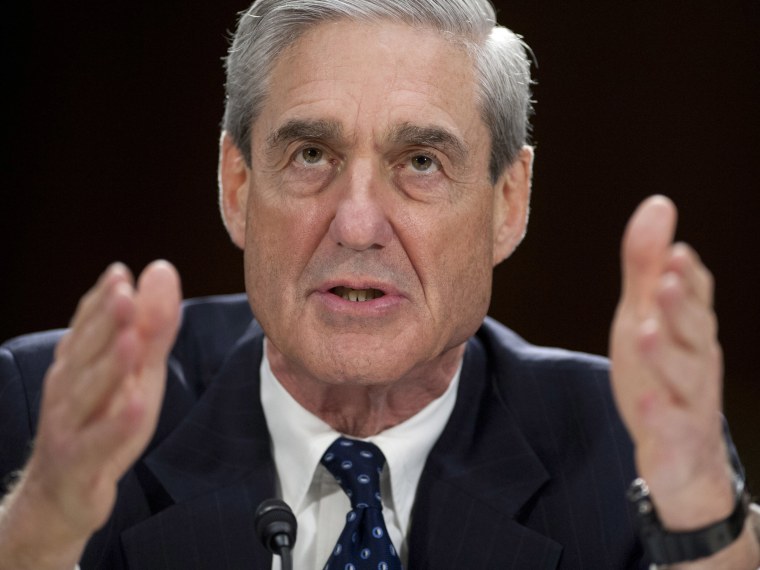First phone records. Then data mining. Now drone surveillance on U.S. soil.
Robert Mueller, head of the Federal Bureau of Investigation, acknowledged on Wednesday that the government agency uses drones for surveillance purposes in the country, though the practice is rare.
The issue came up while Mueller was testifying at an oversight hearing by the Senate Judiciary Committee on the National Security Agency’s surveillance programs. Republican Sen. Chuck Grassley of Iowa asked if the FBI uses drones on U.S. soil.
Mueller said yes, adding the FBI uses them in a “very, very minimal way" and that “our footprint is very small.”
For years, the feds have used drones to police America’s borders. Now we know with certainty that these drones have occasionally been deployed to help domestic law enforcement agencies like the FBI.
Of course, drones have been a critical tool employed abroad for years. Attorney General Eric Holder disclosed in a letter to Congress in May that four Americans were killed abroad by U.S. drones in the course of the government’s pursuit of terrorists since 2009.
Critics have long argued that the legal ground for extrajudicial killing using drones is tenuous, and that drone use for surveillance is an invasion of privacy.
Related: Obama defends drones: They are 'effective' and 'legal'
Democratic Sen. Dianne Feinstein of California asked Mueller during the hearing to elaborate on privacy protections involving the country’s drone program.
“It’s very seldom used and generally used in a particular incident when you need the capability,” said the FBI director. He said the agency was still exploring the “necessary guidelines” for the use of drones.
Feinstein said, “I think the greatest threat to the privacy of Americans is the drone, and the use of the drone and the very few regulations that are on it today.”
Mueller’s testimony comes as the government is already coming under fire since former CIA employee and self-professed NSA leaker Edward Snowden revealed the government was obtaining millions of Americans’ phone records and was operating a program, PRISM, which allows authorities to gather information about the online activities of foreigners via nine leading Internet companies.
President Obama has also defended the surveillance programs.
During his testimony, Mueller said the phone surveillance program has been instrumental to thwarting potential terrorist attacks. He said domestically, the program likely stopped anywhere from 10 to 12 incidents. During congressional testimony on Tuesday, Mueller’s deputy, Sean Joyce said both the phone surveillance program and PRISM, helped stop more than 50 “potential terrorist events” since the Sept. 11 attacks.
Mueller said 22 agents had access to the phone database that Snowden revealed and that 300 inquiries were made about the database last year.
Democratic Sen. Al Franken of Minnesota asked Mueller if he thought the government could be more transparent about the surveillance programs to the American people.
Mueller, who is preparing to step down in September after 12 years leading the FBI, said divulging more information could signal to adversaries what our capabilities are. “There is a price to paid for that transparency,” he said.
